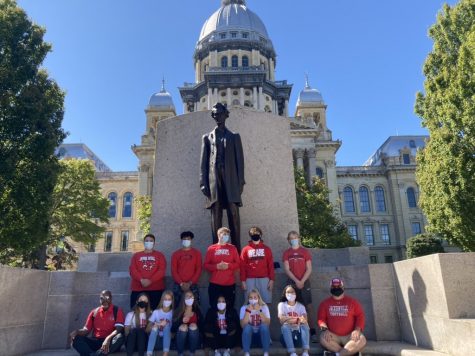Abortion bans prompt nationwide discussion
May 23, 2019
Earlier this month, Georgia legislature introduced a strict policy on abortion, setting off a chain reaction leading other states such as Ohio and Alabama to draft similar policies. Overnight, abortion became the main topic for political discussion, capturing the attention of most of the public, which is rare in our current media saturated world. While many of these new restrictions seem too repressive to be enacted, they are indicative of current laws and attitudes that cause women to jump through countless, pointless hoops in order to use her bodily autonomy and are prompting the question: how restricted should abortion rights be?
Needless to say, the gap between pro-lifers and pro-choicers is wide and fraught with conflict. The divide is polarizing with practically no middle ground. Most pro-lifers believe that abortion should be illegal save for medical emergencies while many pro-choicers believe that abortion rights should be virtually unrestricted during the beginning of the first trimester. Much of the debate stems around the concept of human life and when a fetus becomes a person. Some extreme pro-lifers think that a fetus is a person from conception despite it being, at that time, a cluster of non-feeling cells. These individuals have also argued against Plan B, despite the fact that it does not terminate pregnancy but rather prevents it. On the flip side, pro-choicers consider the fetus a part of the mother until closer to birth, therefore, justifying the woman’s right to choose because the fetus is an extension of the self.
It is important to remember that much of the pro-life stance is based in religious beliefs. Mostly Christian pro-lifers take their arguments from the Bible, despite it not mentioning abortion specifically and not giving any qualifications on when human life is viable. This is a major moral barrier in creating legislation regarding abortion since the United States is not a theocracy. The fact that religion is a pillar of the pro-life stance means that they should not be able to place strict regulations on abortion because it would be forcing their religious beliefs onto others. This kind of religious involvement in government is unconstitutional. It is the right of pro-lifers not to get an abortion due to their beliefs, but it is not their right to police the bodies of others. For this and other reasons, abortion should be unrestricted until the fetus is viable, meaning it can survive outside of the womb, which usually occurs at around 26 weeks.
This brings me to my next major point: the unreasonable qualifications of many new laws being passed regarding abortion. Viability occurs at 24 weeks at the earliest; however, legislators from Georgia and Alabama have proposed banning abortion after eight weeks of pregnancy. They also propose murder charges if a woman breaks this law, even out of state. The idea of persecuting someone for something they did in another state is blatantly unconstitutional and likely to be struck down with little thought since what is done in another state is not in another state’s jurisdiction. Luckily, much of these laws are too extreme to be taken seriously, but they show that anti-abortion sentiments are prevalent and that less harsh laws may be passed soon. Overall, the idea of outlawing abortion at a point where the fetus is barely formed and cannot feel pain shows not a desire to protect life but rather a desire to punish and control women.






